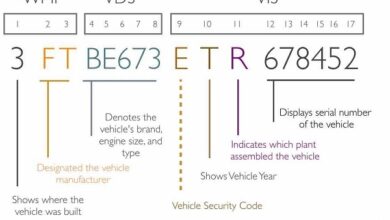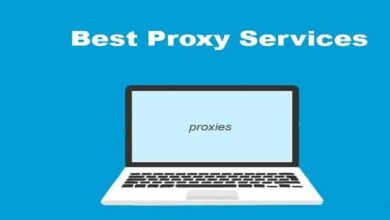15 Key Criteria for Selecting Managed IT Providers in Brisbane

Selecting a managed IT provider in Brisbane involves a nuanced approach that considers both global standards and local dynamics. From understanding regional regulatory requirements to recognising the importance of proximity for on-site support, businesses in Brisbane must consider a range of factors to ensure their IT needs are comprehensively met.
Selecting a managed IT provider is a critical decision for businesses aiming to streamline their IT operations, enhance system reliability, and protect against cyber threats. The right managed IT provider can serve as a strategic partner, driving technological efficiency and innovation. Here’s a detailed exploration of 15 key criteria to consider when choosing a managed IT provider in Brisbane.
1. Expertise and Technical Knowledge
The core attribute of any MSP is their level of expertise and technical knowledge. An ideal MSP should have a team of professionals who are not only certified in various IT disciplines but also have a profound understanding of the latest technologies. This includes cloud solutions, cybersecurity, network infrastructure, and data management. The MSP must demonstrate a deep commitment to ongoing learning and skill development to keep pace with technological advancements.
2. Proven Track Record and References
Before committing to an MSP, it’s important to look into their history with clients similar in scale and industry to your own. A reliable MSP should be able to provide case studies and testimonials that showcase their ability to manage IT environments effectively. Additionally, consider requesting references and following up on them to get firsthand accounts of the MSP’s performance and the quality of their service.
3. Range of Services Offered
Managed IT providers can vary greatly in terms of the services they offer. Some may focus on specific areas, such as cybersecurity, while others may offer a comprehensive suite of services that cover everything from hardware support to cloud computing and data analytics. Determine what services are crucial for your business and ensure the MSP can cater to all your IT needs. This could include:
Helpdesk support: 24/7 availability to address immediate technical issues.
Security services: Comprehensive cybersecurity measures to protect your data and network.
Cloud services: Support and management of cloud infrastructure.
Backup and disaster recovery: Strategies to ensure data integrity and business continuity.
4. Proximity and Availability
Proximity is especially important for immediate needs or emergencies where remote troubleshooting is insufficient. A Brisbane-based provider can offer quicker on-site support and more personal interaction. Ensure they guarantee availability, particularly if your business operates outside standard business hours, to support 24/7 operations without disruptions.
5. Scalability and Flexibility
A competent managed IT service provider should be able to scale their services as your business grows or as needs fluctuate. This is particularly important in a dynamic business hub like Brisbane, where companies can rapidly expand due to local and Asia-Pacific economic activities. The provider should offer flexible and scalable solutions that can adjust without significant delays or costs. This means they should provide flexible service options that can be adjusted as your business expands or shifts direction. Discuss their process for scaling services up or down, and ensure there are provisions in your contract to accommodate such changes.
6. Compliance and Security Standards
In many industries, businesses are required to adhere to specific regulations regarding data privacy and security. It is crucial that your MSP understands these regulations and has robust compliance strategies in place. They should also conduct regular security assessments to ensure your infrastructure meets or exceeds industry standards and is protected against all types of cyber threats. They should also be familiar with Australian and Queensland-specific data protection regulations to help your business comply with these laws.
7. Communication and Reporting
Effective communication is key to any business relationship. Your MSP should provide clear, concise, and regular communication about the state of your IT systems. This includes routine performance reports, incident reports, and strategic reviews that discuss potential improvements or changes in IT infrastructure. Ensure the provider has a structured communication protocol that aligns with your company’s expectations and needs.
8. Pricing Structure
Cost is always a consideration, particularly in the competitive Brisbane market. Understanding how an MSP charges for their services is fundamental. Most providers offer a monthly flat rate, which can be beneficial for budgeting purposes. However, reviewing what is included in this fee is important to avoid unexpected costs. Some may charge extra for services such as emergency response or major system upgrades. Look for transparency in pricing and contracts that clearly outline what is covered.
9. Local Support and Availability
Good local providers in Brisbane will offer multiple support channels with accessible and knowledgeable support teams who understand local contexts and can communicate effectively. If your business requires immediate on-site assistance, having an MSP with a local presence can be a significant advantage. Check if the MSP has personnel or partners located near your business premises. Local support can drastically reduce downtime in case of hardware failures or other critical issues that require physical intervention.
10. Customer-Centric Approach
A great MSP not only addresses technical issues but also prioritises customer service. They should have a proactive approach to managing your IT needs, offering solutions and improvements that align with your business goals. The relationship should be collaborative, with the MSP acting as a strategic partner rather than just a service provider.
11. Technological Compatibility
Finally, ensure that the MSP’s technological solutions are compatible with your existing IT infrastructure. Integrating their services with your systems should not require extensive changes or high costs. If upgrades are necessary, the MSP should manage them seamlessly and with minimal disruption to your operations.
12. Cultural Fit
Finally, the cultural fit between the managed IT provider and the business is crucial for a successful partnership. The provider should understand the business’s core values, communication style, and long-term objectives. A provider that aligns well with the company culture will be more effective in collaborating and contributing to strategic goals.
13. Customer Reviews and References
Research their reputation in the Brisbane area. Testimonials and case studies can provide valuable insights into a provider’s capabilities and the satisfaction of their clients. Prospective businesses should request references and speak directly with existing clients to understand their experiences, particularly how the provider handles challenges and supports business growth. Online reviews and ratings on platforms like Google, Yelp, or industry-specific review sites can also offer a broader perspective on the provider’s reputation.
14. Disaster Recovery and Business Continuity
The ability of a business to recover from data loss or an IT system failure is crucial. A managed IT provider should offer comprehensive disaster recovery solutions that ensure data is regularly backed up and can be quickly restored. Business continuity planning should also be part of their service, offering strategies that enable continuous operation and minimise downtime during a disaster.
15. Customisation and Personalisation of Services
The ability to customise IT services to suit specific business needs is a significant advantage. A one-size-fits-all approach often fails to address the unique challenges and opportunities faced by individual businesses. A quality-managed IT provider in Brisbane will work closely with you to understand your business processes, goals, and IT requirements, offering customised solutions that enhance productivity and efficiency. Whether it’s cloud configurations, cybersecurity protocols, or backup solutions, personalised service can make a substantial difference in the value you derive from your IT investment.
Conclusion
Selecting the right Managed IT Services in Brisbane is a decision that can significantly influence the efficiency and resilience of your business’s IT infrastructure. By carefully evaluating potential MSPs based on these key criteria, Brisbane businesses can ensure robust, responsive, and efficient IT management that not only supports your current operations but also strategically drives business growth and resilience.




